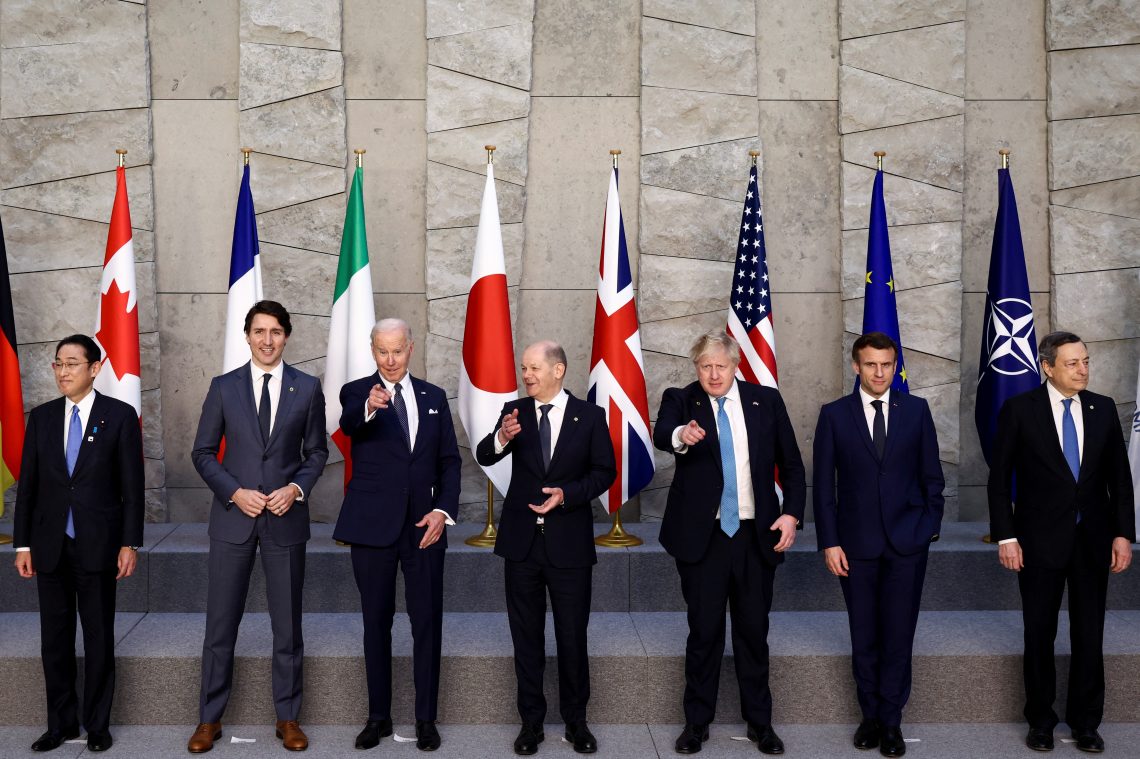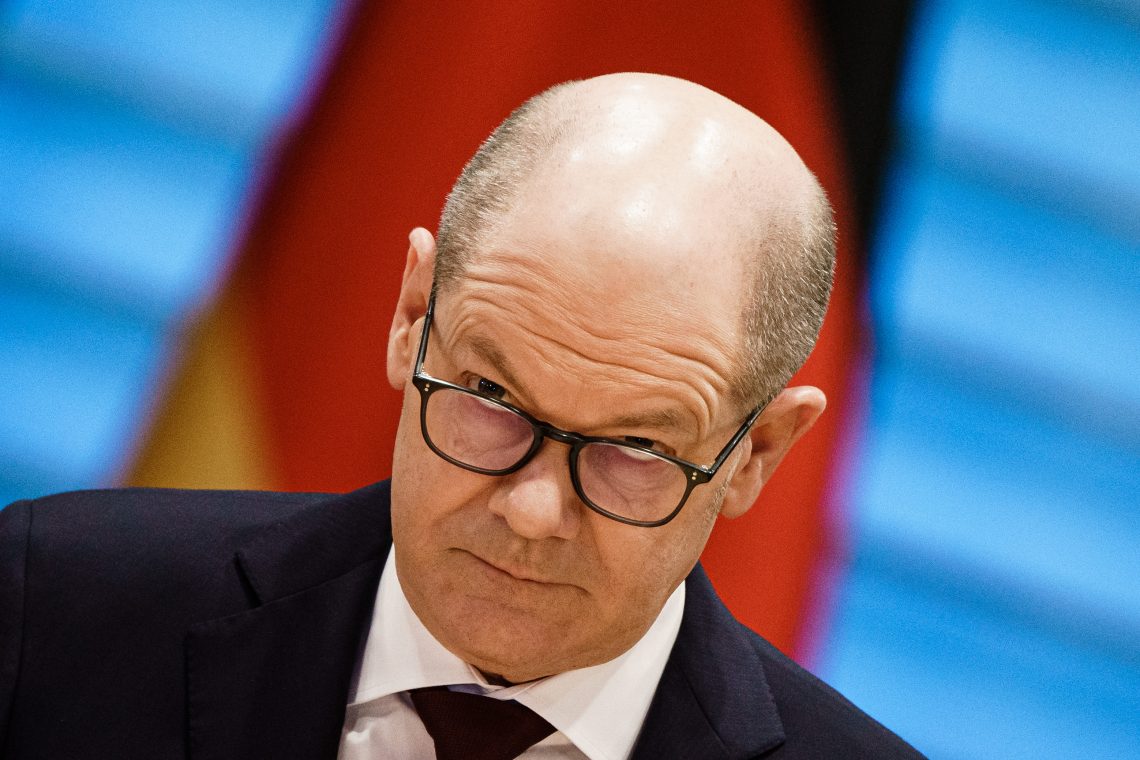Transatlantic relations after the Ukraine war
NATO is likely to remain the cornerstone of transatlantic security, but there are several factors that could derail closer collaboration.

In a nutshell
- The transatlantic community was unprepared for war
- The Ukraine crisis has prompted calls for closer collaboration
- Domestic political issues will play a determining role
The Russian invasion of Ukraine could trigger reassessments of almost every facet of the ties binding the United States, Canada and Europe. More than the outcome of the war, it is the choices that leaders make in its wake that will set the course for years ahead.
New era
American President Joe Biden and his team came into office with a clear sense of priorities. Administration officials planned to shift their focus away from Europe and the Middle East. This was a decision more about focusing on domestic priorities than the stated goal of “pivoting” to Asia. It would not be too much of an exaggeration to assert that the intent was to outsource the management of Europe to Brussels, Berlin and Paris. Other than promising a dramatic change of tone from the previous presidency and a more enthusiastic commitment to “climate action,” the administration promised strong elements of continuity including continued support for NATO – but no way out of the impasse on trade and regulatory harmonization.
While the U.S. expected a steady relationship with Europe, it also meant to send a signal to Moscow that Washington was interested in cooperation. The U.S. and Russia had already been quietly cooperating in Syria (through a collaboration cell hosted by the Jordanians) and hoped this approach might expand to other areas. This would not be another “public” reset, but a lower-profile process of confidence-building.
Beijing’s support of Russia has heightened concerns about Chinese influence and its impact on the transatlantic community.
Meanwhile, the administration also stated that it would prioritize its “democracy” agenda, a declaration that rattled several European countries with close ties to the previous presidency and at odds with Brussels over several issues. President Biden’s emphasis on democracy, like his call for global climate action, were intimately tied to his domestic agenda. As politics in the U.S. have become more partisan and divisive, the administration sought to frame the debate between election integrity (favored by Republicans) and combating voter suppression (favored by Democrats) as a struggle between political extremism and democratic rights. The White House therefore opted to describe the debate between Brussels and Central European capitals in the same manner. This left nations like Poland, Romania and Hungary worried that Washington might freeze them out.
Prior to the Ukraine crisis, there was scant energy in the transatlantic relationship. In general, most European governments felt that there was little consultation with the White House and the U.S. State Department and requests for information were met with a response that “policies are under review.” No new policies seemed to emerge and there seemed to be little appetite for major trade deals.
The administration sent clear signals that Ukraine was off the table as an American priority. The issue, as far as the White House was concerned, was a European problem.
There is no question that the Russian invasion of Ukraine has upended Washington’s thinking. It is widely reported that the release of the public Biden National Security Strategy, long-delayed, was further postponed because there was almost no mention of Europe, and of Russia none at all.
Without question, the situation has changed. But how? There are several issues that will determine the way forward. The protracted nature of the conflict in Ukraine means there will be hard choices ahead for the transatlantic agenda. Trade is likely to remain low on the priority list, but several other key issues will shape future policy.
Climate vs. supply
One of the key challenges will be reconciling ambitious climate action with the imperative for affordable and reliable energy. The White House will have to mitigate concerns over Russian energy blackmail, whereby Moscow threatens to withhold or manipulate prices to obtain concessions from European governments.
Having forged a powerful European consensus on climate issues and the importance of transitioning to a green economy, leaders are reluctant to revisit their priorities. Further, environmental groups and political parties are deeply committed to pressing for a robust climate action agenda. Europe faces the challenge of lingering Russian influence, which has financed efforts to undermine competition with Russian-controlled energy projects.
President Biden was initially inclined to let Europe independently bear the weight of its own security. However, after the war in Ukraine, the administration seems less confident in this concept.
Likewise, in the U.S., the administration remains opposed to promoting oil, gas, and coal. In the short term, the Biden team is looking for strategies to sustain imports rather than oppose the strong interests in their party pressing for diversification of the energy sector and a much greater reliance on renewables.
Yet, the reality is that even before the Russian invasion of Ukraine, global demand outpaced supplies for six consecutive quarters, and this was before economies began to recover from the decline in economic activity due to the Covid-19 pandemic.
How Europe and the U.S. elect to meet the competing priorities of stewardship of the environment and the need for more energy, and whether they proceed together, will significantly affect transatlantic relations.
Guns vs. butter
The demand for increased conventional and strategic deterrence to counter future Russian threats will also have an impact. Several governments, most noticeably Germany, unexpectedly changed gear and embraced increased defense spending. The U.S.’s future defense plans, however, are unclear. The Biden team announced no major changes in its global force posture. They have yet to address demands for increased forward presence in Europe and the higher defense budgets this would entail.
U.S. vs. them
The Ukraine crisis has done little to deter the call for European strategic autonomy. Paris continues to trumpet the importance of independent security. Critics argue this is little more than a ploy for propping up French defense sales, and that Europe is incapable of mustering sufficient capacity to defend European interests outside of NATO.

President Biden was initially inclined to let Europe independently bear the weight of its own security. However, after the war in Ukraine, the administration seems less confident in this concept and more interested in strengthening NATO. The alliance’s internal review seems to have been willing to accede little on this point. This debate is likely to remain a minor irritant in transatlantic relations unless there is a major reversal that leads more European leaders to agree with French President Emmanuel Macron’s assertion that NATO is “brain-dead.”
Migration
The wave of refugees from Ukraine has sent shockwaves across Europe. Creating masses of displaced persons has become the new weapon of mass destruction. In both the U.S. and Europe there was a strong impulse to adopt a “right to migration” that would supersede national borders and state sovereignty. The Biden administration has adopted more liberal policies that have allowed over two million to illegally enter the country. Both in the U.S. and Europe, there has been a strong pushback over illegal migration, crime and national security concerns, as well as societal issues. Europe has also seen forced migration by adversarial states. The debate over how to respond to these threats is only sharpening.
Woke vs. not
This administration adopted approaches to social issues very consistent with the most liberal governments in Europe. Americans, however, are deeply divided over progressive policies that address everything from gender identity to education. In a 50-50 nation, official policies on these issues could flip with every national election. In Europe, the gap between more liberal and conservative governments is growing. How the culture wars get resolved could also affect how coherently the West responds to real wars.
Trouble with China
Beijing’s support of Russia has heightened concerns about Chinese influence and its impact on the transatlantic community. Calls in the EU to have China mediate the Ukraine-Russia conflict have been dismissed as simply not credible. The growing sentiment on both sides of the Atlantic is that Xi Jinping would prefer a divided, weakened and distracted Europe. Beyond that, there is no consensus on either shore for the right strategy. That said, decoupling measures are gaining more prominence. This could be a position that could shift from wishful thinking by China hawks to real debate in Europe, the U.S. and Canada.
Scenarios
Without knowing how this plethora of issues will be resolved by Western leaders it is difficult to predict the future direction of the Atlantic community. Much will depend on the decisions made in response to these conflicts and tensions.
Absent some catastrophic reversal, it is difficult to envision a near-term future where the NATO alliance does not continue to be the cornerstone of collective defense. Beyond, those policies could head in one of three directions.
In one scenario, after the war on Ukraine, a consensus could emerge that addressing conflicting priorities is too difficult, and without the prospects for another war in the near term, the transatlantic community would revert to status quo policies.
A second scenario is that the crisis builds momentum for increasing consensus-building.
A third scenario is that the debate on the way forward exacerbates the differences in the community facilitating further fragmentation, even if NATO still stands. Regional groupings could become more prominent, as well more balancing in bilateral relationships with the U.S., China and Russia.
The first is the most likely, given the diversity of leadership across the community at present. That said, as the course and consequences of the war unfold the pressure of events may prompt a more radical rethinking of the way forward.







